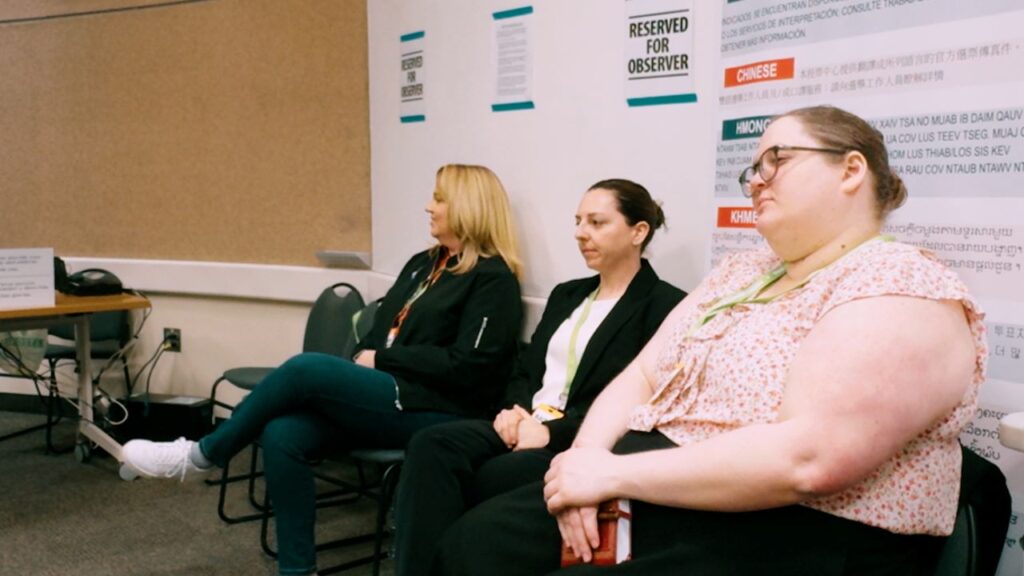Despite everything, I am still not a liberal, writes the New York Times columnist David Brooks, in delving into why the left fails to fully grasp the reality of lifting people out of poverty. (Philotheus Nisch/The New York Times)

- Liberals assume that material conditions drive history, not cultural or moral ones, opines David Brooks.
- However, "this materialistic bent leads to all sorts of bad judgments," he asserts.
- "Today, most of our problems are moral, relational and spiritual more than they are economic," Brooks concludes.
Share
|
Getting your Trinity Audio player ready...
|
Last May, a study came out suggesting that merely giving people money doesn’t do much to lift them out of poverty. Families with at least one child received $333 a month. They had more money to spend, which is a good thing, but the children fared no better than similar children who didn’t get the cash. They were no more likely to develop language skills or demonstrate cognitive development. They were no more likely to avoid behavioral problems or developmental delays.
These results shouldn’t have been a big surprise. As Kelsey Piper noted in an essay for The Argument, a different study published last year gave families $500 a month for two years and found no big effects on the adult recipients’ psychological well-being and financial security. A study that gave $1,000 a month did not produce better health, career, education or sleep outcomes or even more time with their children.
Way back in 1997, Susan E. Mayer, a University of Chicago sociologist and behavioral economist, published “What Money Can’t Buy.” She began her research believing that cash transfers would make a big difference in people’s lives but was persuaded by the evidence that even if you doubled a family’s income, it would have a limited effect on their children’s dropout and teenage pregnancy rates or other outcomes.
She stated her findings clearly: “The results in this book imply that once children’s basic material needs are met, characteristics of their parents become more important to how they turn out than anything additional money can buy.”
She added, “Parental income is not as important to children’s outcomes as many social scientists have thought.” Rising out of poverty also requires the nonmaterial qualities we now call human capital, such as skills, diligence, honesty, good health and reliability. Mayer concludes, “Children of parents with these attributes do well even when their parents do not have much income.”
How Do We Better Nurture Human Capital?
As a society, we are pretty good at transferring money to the poor, but we’re not very good at nurturing the human capital they would need to get out of poverty. As a result, we do an OK job supporting people who are in long-term poverty but a poor job of helping them lift out of poverty. As Piper noted in a subsequent post, we spend more money combating poverty today than the entire U.S. gross domestic product from 1969, yet “the share of Americans whose pretransfer income places them in absolute poverty has barely fallen.”
Piper’s essay kicked up a bit of an internet storm. You might have thought the progressive reaction would have been: We need to keep giving poor people money, but we also need to focus on the human and behavioral factors that will enable them to build comfortable, independent lives.
But that wasn’t the reaction. The progressives I saw doubled down on the thesis: Poor people just need money.
Matt Bruenig’s contention, also in The Argument, was typical. He scorned the very idea that focusing on human capital is a good way to improve social mobility. He wrote, “Cash is the key part of every welfare state in the developed world and absolutely critical for keeping poverty down.” We shouldn’t make fighting poverty overly complicated, he argued. “As a policy matter, these are mostly solved problems.” Just write people checks.
This is consistent with something I’ve noticed all my life — the materialist bent of progressive thought: the assumption that material conditions drive history, not cultural or moral ones. A couple of decades ago, Thomas Frank published “What’s the Matter With Kansas?” based on befuddlement that Kansans were apparently voting against their economic self-interest. Doesn’t economics drive voting behavior? Progressives have often argued that improving schools is mostly about spending more money, that crime is mostly the product of material deprivation.
Conservatism, as you know, is a complete mess in America right now. But reading conservative authors like Edmund Burke, Samuel Johnson, Fyodor Dostoyevsky, Gertrude Himmelfarb and James Q. Wilson does give you an adequate appreciation for the power of nonmaterial forces — culture, moral norms, traditions, religious ideals, personal responsibility and community cohesion. That body of work teaches you, as Burke wrote, that manners and morals are more important than laws. You should have limited expectations about politics because not everything can be solved with a policy.
Many years ago, I came across a study that neatly illustrated the power of culture. Researcher Nima Sanandaji calculated the poverty rate of Americans with Swedish ancestry. It was 6.7%. They also looked at the poverty rate in Sweden, using the American standard of poverty, and it was also 6.7%. Different political systems, same outcome.
Values Are Far More Important Than Money
Neoconservatism came along and took conservative insights and applied them to policymaking. During the Iraq War, the word “neocon” came to mean the opposite of its real meaning, but originally, it was a movement within the Democratic Party to correct the policy failures of the Great Society.
Thinkers like Irving Kristol and Nathan Glazer had been poor immigrant kids. They were willing to spend money to fight poverty, but they wanted the programs to nurture the values that they had seen firsthand help people rise: hard work, family and community cohesion, reliability, a passionate commitment to education. These values tend to inhere in communities before they are transmitted to individuals.
Progressives, by contrast, are quick to talk about money but slow to talk about the values side of the equation. That’s in part for the best of reasons. They don’t want to blame the victims or contribute to the canard that people are poor because they are lazy.
But there’s something deeper. Progressivism emerges from a different lineage. Karl Marx influenced many people who are not Marxist, and he saw the world through a material-determinism lens — people’s consciousnesses are shaped by their material conditions.
As Christian Smith, a Notre Dame sociologist, has been arguing for decades, the social scientists obliterate the subjective experiences of the people they study. Human agency disappears if research subjects are reduced to a bunch of variables that can be correlated. People who overly rely on social science knowledge are going to tend to focus on money because it can be counted more easily than culture. People who rely on government to solve problems will tend to overemphasize the power of money because that’s the thing government most easily controls.
Populism Is About Respect, National Identity, Not Necessarily Money
This materialistic bent leads to all sorts of bad judgments. For example, Joe Biden and his team had one job: to make sure Donald Trump never set foot in the White House again. They tried to accomplish that the only way they knew how: throw money at the problem. The vast bulk of the new Biden spending went to red states to employ workers without college degrees. Politically, the project was a complete failure. Populism is not primarily economic; it’s about respect, values, national identity and many other things. All that spending did not win anybody over.
Today, most of our problems are moral, relational and spiritual more than they are economic. There is the crisis of disconnection, the collapse of social trust, the loss of faith in institutions, the destruction of moral norms in the White House, the rise of amoral gangsterism around the world.
I’ve been driven away from the right over the past decade, but I can’t join the left because I just don’t think that tradition of thought grasps reality in all its fullness. I wish both right and left could embrace the more complex truth that neocon Democrat Daniel Patrick Moynihan expressed in his famous maxim: “The central conservative truth is that it is culture, not politics, that determines the success of a society. The central liberal truth is that politics can change culture and save it from itself.”
If you can find some lefties who are willing to spend money fighting poverty but also willing to promote the traditional values and practices that enable people to rise, you can sign me up for the revolution.
This article originally appeared in The New York Times.
By David Brooks/Philotheus Nisch
c.2025 The New York Times Company




















